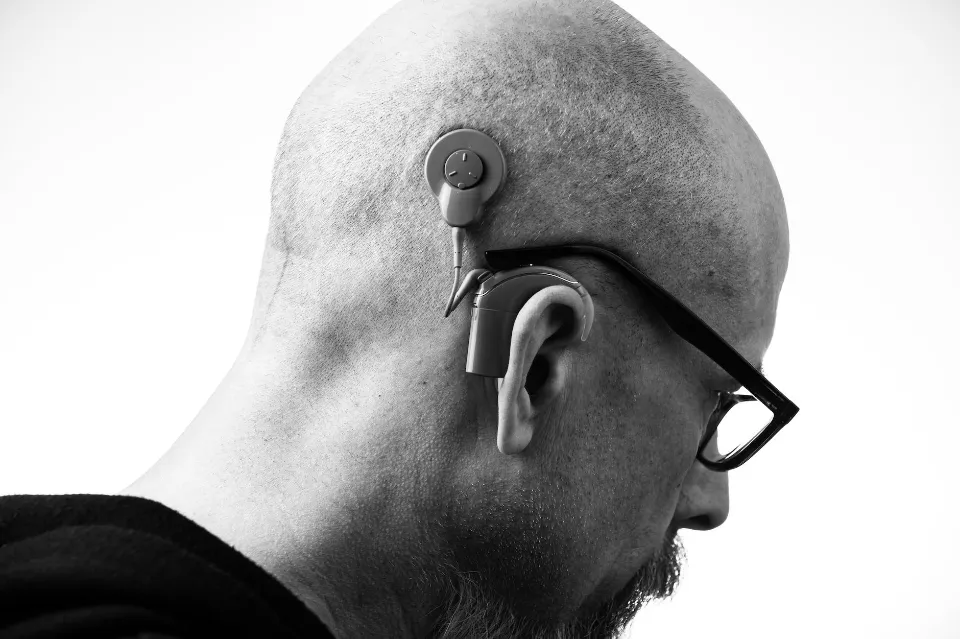You’ve probably heard that hearing loss is irreversible and that hearing damage can develop gradually over time. A simple way to prevent inner ear damage and hearing loss is to avoid exposure to loud noises and use protection. You can also research natural hearing improvement methods.
Follow these 7 tips to help identify risks, prevent hearing loss, or stop it from getting worse, and learn about the various types of hearing loss and how to protect your ears.
Types of Hearing Loss
The three types of hearing loss are conductive, sensorineural, and mixed, according to the American Speech-Language-Hearing Association (ASHA).
- Conductive hearing loss occurs when sounds cannot get through the outer and middle ear.
- Sensorineural hearing loss occurs with inner ear damage or problems with the nerves leading from the inner ear to the brain.
- Mixed hearing loss is a combination of conductive hearing loss and sensorineural hearing loss.
Can you, therefore, sharpen your hearing?
By taking better care of your health, looking after your ears, and forming some positive habits, you can improve your hearing naturally.

Conduction hearing loss can also be improved. In some circumstances, hearing loss of this kind can be improved. Particularly when it is brought on by conditions like allergies or ear infections.
In some cases, more severe inner ear conditions like otosclerosis or cholesteatoma can also worsen hearing loss. By taking some concrete actions, you can improve your hearing naturally. The earlier the better!
Learn how to preserve and enhance your hearing by continuing to read.
7 Ways to Improve Hearing
Clean Excessive Ear Wax
Cerumen, another name for ear wax, is a type of natural defense that guards against infection, bacteria, and foreign objects getting inside your ear. The glands in your outer ear secrete ear wax, which varies in color and consistency depending on the individual.
Your hearing may be impacted by an excessive buildup of earwax, which can also make sounds seem muffled. You shouldn’t attempt to get rid of it on your own because doing so could harm the ear canal’s delicate lining. Instead, consult your doctor about your treatment options. The glands in your outer ear secrete ear wax, which varies in color and consistency depending on the individual.
While some ear wax is healthy, too much can lead to discomfort and mild hearing loss. If you think you have an ear wax blockage, schedule an appointment with your doctor. Never try to remove the wax yourself because you could damage the delicate lining of your ear canal or eardrum and push the wax deeper into your ear.
Stop Smoking
If smokers need yet another health-related reason to quit, here it is: research indicates that smoking can more than double your risk of hearing loss. That’s because your inner ear’s healthy cells depend on adequate blood flow and oxygen, both of which are impeded by smoking and breathing in carbon monoxide. Smoking also interferes with your eustachian tube’s normal operation and irritates the lining of your middle ear.
Tinnitus, also known as ringing in the ears, has been linked to nicotine use. The neurotransmitters that send signals from your hearing nerves to your brain, according to some experts, may be affected.
Protect Your Ears from Loud Noise
Your first natural hearing improvement strategy should be to protect your ears from loud noise. Noise levels greater than 85 decibels are thought to be harmful to human hearing. Likewise, some frequencies. As a result, you should try to avoid or limit your exposure while keeping an eye on decibel levels and frequencies.
To protect your ears from loud noise:
- Avoid standing too close to sources of loud noise; move further away
- Turn the volume down on your TV, sound system, or earphones
- Limit exposure to loud noises or cut down on listening to loud music
- Use hearing protection whenever you cannot avoid exposure
Meditation and Yoga
More and more, people are turning to meditation for improving their hearing health. This is because relaxing and taking deep breaths increases blood flow to the brain – which can help you become more attuned to sounds that may have otherwise escaped your attention. Meditation can be beneficial for those looking to better engage with their hearing even though it is a mental exercise rather than a physical self-care activity.

Many people who experience hearing loss claim that occasionally, practicing yoga can help them hear better. Your head receives more oxygen-rich blood when you are relaxed and stretching in positions like downward dog, which may improve your hearing. You can set up your mat anywhere in the house that is most comfortable without the help of an instructor; just make sure to warm up first.
Physical Exercises
Your overall health can be improved by physical activity. Exercise on a regular basis is good for your health and can help your hearing.
To begin experiencing these advantages, no rigorous exercise is necessary. Blood circulation can be improved by going for a long walk, jogging, doing simple housework, or working in the garden. This can ultimately aid in improving your hearing.
Do Regular Hearing Screenings
Regular hearing tests can find hearing loss early on and increase your chances of regaining normal hearing. A routine hearing test also provides your doctor with a baseline to which your hearing can be compared as you age, allowing changes to be detected more quickly.
A Healthy Diet
Here’s how you can improve hearing using natural remedies:
- Drink ginger tea
- Add cilantro, cinnamon, oregano, rosemary, sage to your teas and foods
- Take Ginkgo Biloba extract supplements (60 to 240 milligrams/day are good for tinnitus)
- Put a mixture of tea tree oil, olive oil, colloidal vinegar, and apple cider vinegar into your ears for five minutes, four times per day
- Massage some Cajeput essential oil behind and in front of your ears
- Take folic acid, magnesium, zinc, vitamin B supplements
- Eat more nuts and seeds, cold-water fish, whole grains, and fruits and vegetables rich in antioxidants (like blueberries)
Other Tips
Apart from the techniques described above, here are a few more everyday tips on how to make your hearing better:
- If noise levels are too loud, move away from the source, turn down the volume, or wear hearing protection
- Balance off any exposure to loud noises with quiet time
- Create a quiet environment in your home where you can relax and give your ears a break
- Take regular breaks when listening to loud music
- Improve your eating habits and increase your nutrient and vitamin intake to improve hearing
- Do physical exercises to improve blood circulation to the ears
- Intentionally practice listening comprehension in louder environments
Conclusion
Of course, some hearing issues need to be addressed in a more direct manner. Consult an audiologist or your general practitioner if you have any worries about the condition of your hearing or the best way to manage it.



